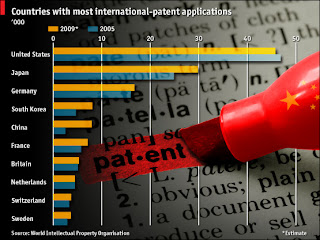...Motorola Mobility has said it owns about 24,500 patents...
Prior to the Nortel deal (6000+ patents), Microsoft had something like 17,000 patents, while Google had something like 700
Google also purchased more than 1,000 patents from IBM in July
So, for $12.5 B Google will get even more patents than Microsoft,
and it will almost double number of people...
Motorola: 19 000 employees
Google: 28,768 employees
That is $650 000 per person, or $510 000 per patent.
Motorola Patents Compared
While it is clear that Google does need "arms for the patent war",
it is a good question if a fraction of the same money was invested in people,
engineers around the world, how much better outcome would be?
Here is an fascinating, related story about Patents on "This American Life"
THE most popular (listened) podcast.
When Patents Attack!
It is about "Intellectual Ventures", that owns 35,000(!) patents,
much more than Microsoft, Google...
and making all money on licensing and patent litigation...
There is even a trancript of the podcast, for those who like more to read than to listen :)
Now, guess who is on track to become another patent super-power...

Number USA patents per year is on decline, and China is dramatically increasing number of patents...